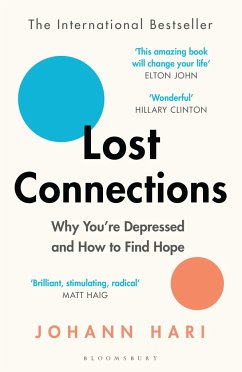
Thus there are copious notes at the back of Lost Connections containing websites, journals and books consulted, while his interview recordings have been made available online.Īs well as sifting through hundreds of academic papers, Hari has talked directly to people who have made great strides in understanding depression. In 2011 it emerged that he had been using quotes from his interviewees’ books, and from previous press interviews, as if they had been given to him. It’s no surprise that Hari is meticulous in revealing his methods, given his past misdemeanours while working at the Independent. It wasn’t until he was in his 30s that he thought of all the questions the doctor didn’t ask, such as: what was his life like? What was making him sad? What changes could be made to make life more tolerable? The push and pull between “reactive” depression (the kind that relates to our environment and life experience) and “endogenous” depression (where something goes wrong in the brain) forms the basis of Lost Connections, an eye-opening, highly detailed though sometimes frustrating investigation into the causes and cures of depression.

As Hari swallowed his first tablet, he says, “it felt like a chemical kiss”. And so he prescribed some pills that would restore the balance. “Get over it,” it would say, “stop being so weak.” The doctor was reassuring, explaining that these feelings were to be expected since Hari was one of many people whose brain had depleted levels of serotonin. When he wasn’t taking himself off to cry quietly, an anxious monologue would be running in his head. That morning he had visited a doctor and explained how, ever since he was small, he had battled with feelings of overwhelming sadness. W hen Johann Hari was 18 he took his first antidepressant.


 0 kommentar(er)
0 kommentar(er)
